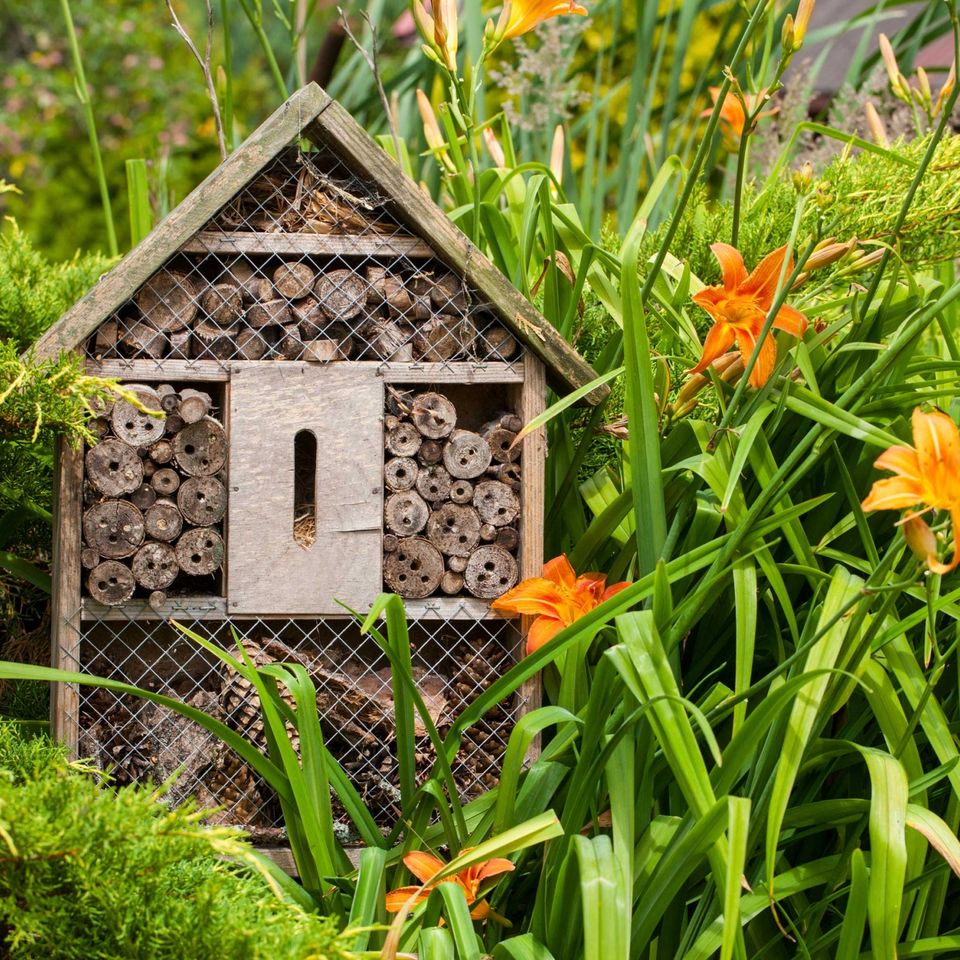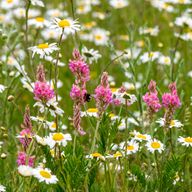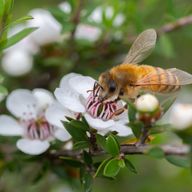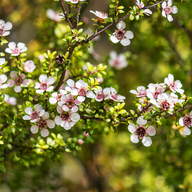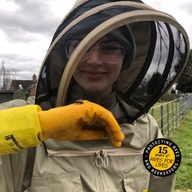
Top tips to build or buy your own, where to place it and what you can expect
Spring and summer are bees’ favourite time of year, and solitary bees, which make up the majority of the bee species in the UK, love a bit of space. Yup, you guessed it – they live alone. Unlike the honey bee – our little honey making favourite that gives us our delicious honey – solitary bees don’t live in colonies, produce honey or have a queen.
As their name suggests, they make their nests on their own and lay their eggs in tunnels, such as in dead wood or hard soil. But because bees have lost much of their natural habitat in the past 60 years, including rich wildflower meadows, this is where they need a helping hand. The bee-rilliant news is, you can build or buy a bee hotel for your very own garden to start to replace and restore some of this lost habitat. Here at Rowse, we celebrate all the different varieties of bees, so we’ve answered some of your questions and shared some tips and tricks to get you up and running.
Why build a bee hotel?
Welcoming in these buzzing creatures, then seeing them flit happily in, out and around the bee hotel is mesmerising. Crucially though, knowing that you’ve helped the bees is fulfilling; your act of hive kindness increases their chances of survival. If you’re a parent or grandparent, owning and monitoring a bee hotel is also a fantastic way to educate little family members about the wonders of nature and the remarkable role these pollinators play, with a spot of ‘show and tell’.
When should I put my bee hotel up?
As spring and summer are the key seasons, that time of year is ideal, but some solitary bees can be active as late as September.
How do I build a bee hotel?
Building a bee hotel is lovely way to spend an afternoon in the sunshine. Crafting this construction from scratch, seeing little pollinators enjoying their stay and knowing the positive impact this will have is un-bee-lievably fulfilling. This is an energising process for both your body and mind – in fact, it was recently stated that nearly 90% of people said being in nature made them happy, so it will benefit your wellbeing too.
If you live with family or friends, involving the whole household in creating a special bee-friendly space is a wonderful bonding experience. You could assign roles, like ‘head of woodwork’ and ‘chief customiser’. Let your creativity run wild by painting your bee hotel with bright colours or quirky patterns!
Now for the practical DIY tips. Wildlife charity RSPB offers a bee-rilliant step-by-step guide to building your own ‘Bee B&B’. It’s essentially a box packed with wooden tubes or bamboo canes; these are hollowed out to different diameters, so different bees can enter. Keeping these holes clean and clear is key, as the buzzing community will refuse to burrow into blocked openings. Splinters on the inside of a hole can also cut their little wings, so use sandpaper to smoothen the passageways into your bee haven. With that, your bee hotel is ready — and it’s the sweetest feeling.
What’s the best bee hotel to buy?
If you’re keen to get cracking or a spot of carpentry isn’t for you, bee hotels are also available to buy online and at garden centres. There are numerous options out there but you want to find ones with tubes that are at least 100mm deep, to provide enough space and winter protection for the growing larvae, and with tubes that vary in diameter from 6-10mm.
If your space is tight, or your preference is for a more minimalist design aesthetic, then there are simpler options like a ‘bee brick’ or a ‘bee pot’. The beauty of a ‘bee pot’ is you can plant a bee-friendly flower in the top, so a food source for residing pollinators is never far away! These also make a lovely, unique gift; who wouldn’t enjoy a beautiful centrepiece for their garden or balcony knowing that it is also helping to protect and save the bees?
Where can I place my bee hotel?
Find a secure, safe space around waist or chest height, maybe on a fence or wall. Very importantly, place it facing south in a sunny position, shaded from the wind, near your bee-friendly flowers and shrubs.
Will I find honey in the bee hotel?
It’s important to note that bees will not produce delicious honey here. A bee hotel is purely a nesting place for these important non-honey making pollinators.
If you install a welcoming bee hotel, some hardworking buzzing friends may soon make a bee-line! So, while it makes a lovely feature in your back garden or balcony and is an educational talking point for little ones, ultimately, you’ll be helping to save the bees. It won’t be long before you’re saying, “honey, they’re home!”
